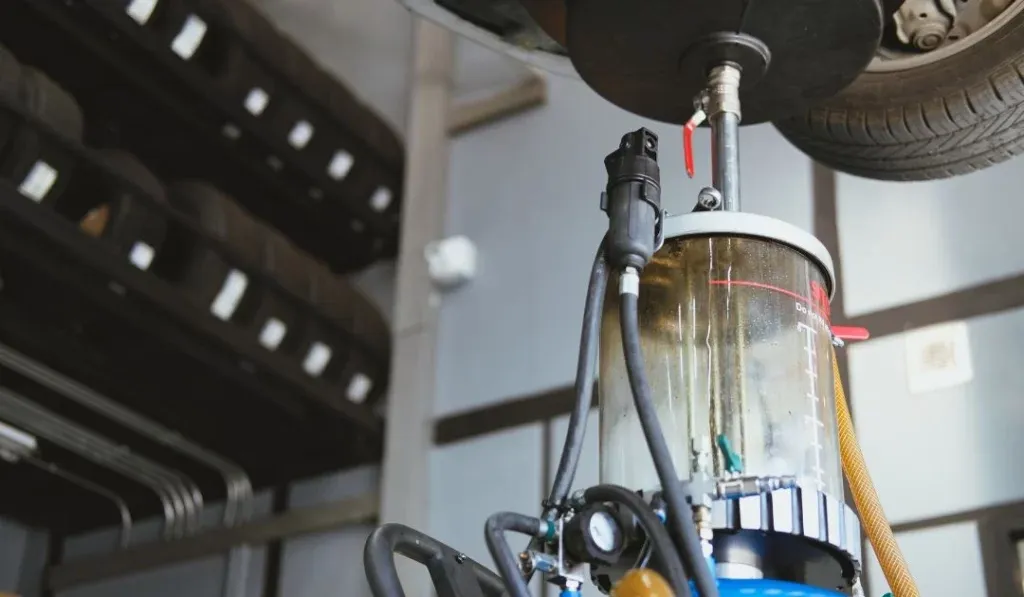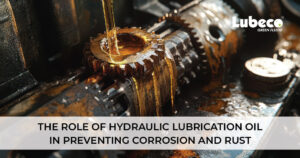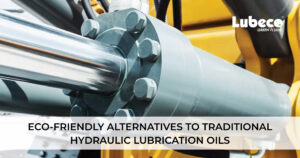Hydraulic lubrication plays a crucial role in machinery and equipment that utilize hydraulic systems. It involves the application of lubricants, such as oils or greases, to reduce friction and wear between moving parts within hydraulic components. Understanding its importance is essential for ensuring optimal performance, reliability, and longevity of hydraulic systems. Here are some key aspects to consider:
Friction reduction: Hydraulic systems involve the movement of various components, including pistons, cylinders, valves, and pumps. These parts often experience high pressures and forces, resulting in friction and heat generation. Proper lubrication helps minimize friction, allowing smooth movement of parts and preventing excessive wear and damage.
Wear protection: Hydraulic systems operate under demanding conditions, where metal surfaces come into contact with each other. In the absence of proper lubrication, these surfaces can experience accelerated wear and corrosion. Lubricants form a protective layer that reduces metal-to-metal contact, preventing wear and extending the lifespan of components.
Heat dissipation: Hydraulic systems generate heat during operation due to internal friction and energy losses. Excessive heat can cause fluid degradation, reduce system efficiency, and lead to component failure. Lubricants with good thermal properties help dissipate heat and maintain the system within safe operating temperatures, ensuring optimal performance.
Contaminant control: Hydraulic systems are susceptible to contamination from particles, moisture, and other contaminants. Lubricants act as a barrier, preventing contaminants from reaching critical components and causing damage. Additionally, some hydraulic lubricants have specific properties to absorb or suspend contaminants, improving the overall system cleanliness.
Sealing enhancement: Seals play a vital role in hydraulic systems, preventing fluid leakage and maintaining pressure. Proper lubrication helps enhance the performance and lifespan of seals by reducing friction and preventing seal material degradation. It also assists in maintaining proper sealing functionality, ensuring the system operates efficiently.
Corrosion prevention: Hydraulic systems may be exposed to moisture or harsh environments, increasing the risk of corrosion. Lubricants with anti-corrosion additives form a protective layer on metal surfaces, safeguarding them from oxidation and corrosion. This helps maintain the integrity of hydraulic components and prevents premature failure.
Energy efficiency: Efficient lubrication in hydraulic systems helps reduce energy consumption. By minimizing friction and optimizing the performance of moving parts, less power is required to overcome resistance, resulting in improved overall system efficiency.
Noise reduction: Hydraulic systems can produce noise and vibrations due to the movement of components. Proper lubrication helps dampen these vibrations and reduces noise levels, creating a quieter operating environment.
System response and control: Effective lubrication ensures smooth and precise movement of hydraulic components, enabling accurate control and response of the system. This is especially critical in applications that require precise positioning, such as in industrial machinery or vehicle steering systems.
Maintenance cost reduction: Well-lubricated hydraulic systems experience less wear and require fewer repairs, leading to reduced maintenance costs over time. Regular lubricant analysis and maintenance practices help identify potential issues early on, allowing for proactive measures to be taken before they escalate into major problems.
Environmental considerations: Selecting the appropriate hydraulic lubricants and following proper disposal practices contribute to environmental sustainability. Using eco-friendly lubricants that comply with environmental regulations minimizes the impact on soil and water sources in case of leaks or spills.
Compatibility and compatibility: Hydraulic lubricants need to be compatible with the materials used in the system, including seals, hoses, and gaskets. Choosing the right lubricant ensures compatibility and avoids potential damage or degradation of system components.
Extending component life: Proper lubrication significantly extends the lifespan of hydraulic system components. By reducing friction, wear, and corrosion, lubricants help preserve the integrity of parts, resulting in longer-lasting and more reliable equipment.
Safety: Reliable and well-maintained hydraulic systems are crucial for safety in various industries, such as construction, manufacturing, and transportation. Hydraulic lubrication plays a vital role in maintaining system integrity, preventing unexpected failures, and ensuring the safe operation of machinery and equipment.
Operational performance: Optimal hydraulic lubrication directly contributes to improved operational performance. It enables the system to achieve the desired speed, precision, and power output, enhancing productivity and overall equipment efficiency.
To ensure effective hydraulic lubrication, it is important to follow manufacturer recommendations regarding lubricant selection, viscosity, change intervals, and contamination control. Regular maintenance, including oil analysis and filter replacements, helps monitor lubricant condition and system health.
In summary, hydraulic lubrication is crucial for reducing friction, preventing wear, dissipating heat, controlling contaminants, enhancing sealing, and preventing corrosion. By prioritizing proper lubrication practices, machinery and equipment owners can optimize the performance, reliability, and lifespan of their hydraulic systems.








